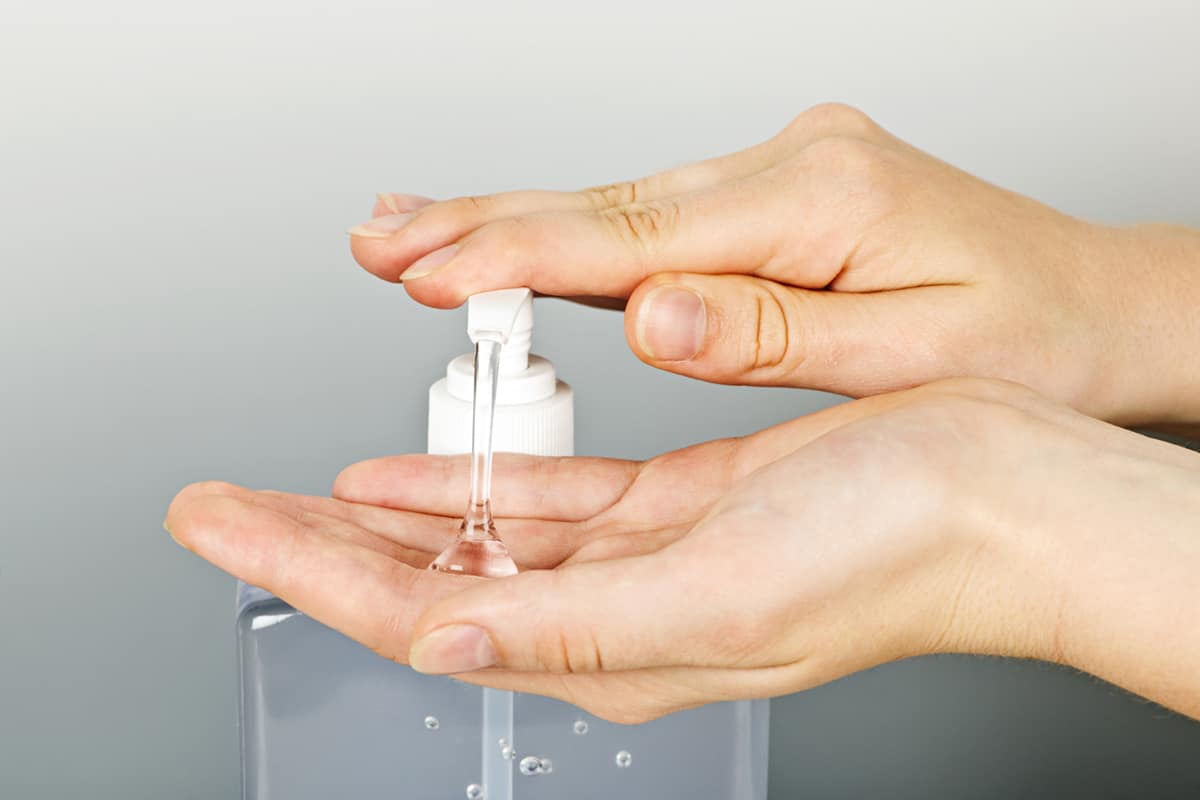The coronavirus cases are not coming slow and in many parts of the world, hygiene essentials like sanitizers are completely out of stock. Typically, nothing beats any pathogenic disease like this novel coronavirus (COVID-19) infection better than taking care of your personal hygiene especially the hand hygiene. It includes hand wash with a germ-killing soap or liquid.
But what to do if soap and water are not in reach? The alternate option to soap is a sanitizer. TheCenters for Disease Control and Prevention (CDC) says that an alcohol-based sanitizer is helpful against coronavirus if the alcohol content inside it is 60% or more.
There are the least chances to find a good quality hand sanitizer now. The drastic spread of coronavirus has made the existing stock to completely run out. So if you are completely out of sanitizers, here is good news. You can make it at home with a simple recipe and ingredients.
It only needs the following.
- isopropyl alcohol (99%) or rubbing alcohol
- aloe vera gel
- Any fragrant essential oil i.e. tea tree oil
Ideally, the alcohol content inside a sanitizer should be 60%. To balance this ratio, stick to follow the proportion 2:1 of alcohol and aloevera gel. It would give you a sanitizer with 60% alcohol content which is the least quantity that the CDC explains to be helpful in killing pathogens.
Also read- People with Type A Blood May Be At a Higher Risk of Coronavirus Infection
To make a sanitizer at home, you need to mix alcohol and aloevera gel in the prescribed ratio in a medium-size bowl. Add a few drops of any essential oil of your choice to make it fragrant. Mix it till it takes a gel-like texture. Pour this gel into any empty container or a used hand sanitizer bottle.
Note that this is a general formula for a home-based sanitizer. For large scale production or batch, the World Health Organization (WHO) has provided a detailed formula that uses hydrogen peroxide, glycerol and distilled or boiled water with alcohol.
The Centers for Disease Control and Prevention (CDC) acknowledges the significance of hand care and hygiene to control the spread of coronavirus. Practices such as hand washing or using an alcohol-based hand sanitizer are helpful to reduce the chances of a microbe to infect a person.
Hand washing is the best practice to wash away all the pathogens, CDC says but laboratory findings show that 60% ethanol or 70% isopropanol is also helpful to remove stubborn pathogens including the COVID-19.
The home-made hand sanitizers are helpful but many people question their efficacy during the current coronavirus outbreak. The branded sanitizers that are available in the market are produced under professional care and expertise.
Home-made sanitizers are helpful but they are not recommended as the first choice by medical experts. Most of them recommend washing hands instead of using a sanitizer. But if in extreme cases, like this current coronavirus outbreak, when sanitizers completely vanish from retail stores, the homemade hand sanitizer can also be helpful.
Also read- Is Diabetes a Risk Factor for Active Tuberculosis (TB)?
Hand washing is still better than using a hand sanitizer. So whenever there is a choice, prefer washing your hands with warm water and soap, says CDC. The only reason to use a sanitizer should be the unavailability of soap and water, it further explains.
Don’t forget to wash your hands after you use the bathroom, touch your face, cough, sneeze, eat or after touching a surface.
Make sure that you are not relying on the homemade hand sanitizers alone and following other precautionary measures as well.
Warning!
- Do not add any unknown chemicals in your home-made sanitizer recipe unless approved by a professional.
- Only make and use a home-based sanitizer when in extreme need. Otherwise, try to wash your hands.
- Do not use these sanitizers on children’s skin as it might react to their skin.
- Do not mix and match with other sanitizers or anti-microbial products to make your own recipe.
- Do not over-use a hand sanitizer.
- There are many other variations of homemade sanitizer recipes are available but do not experiment with chemicals.


